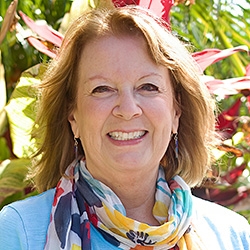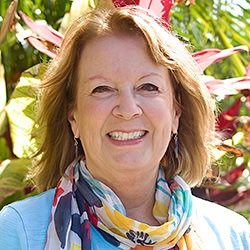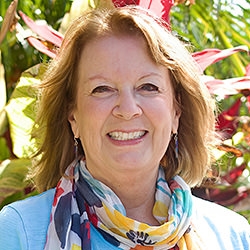

Search Results: asking
-
Exploring how empathy and honesty work together as essential parts of NVC practice.
-
Ask the Trainer: Understanding your needs behind using protective force with children.
-
Ask the Trainer: Finding ease and authenticity when writing to someone with cancer.
-
Ask the Trainer: Can all needs be met when illness limits the capacity of one person to meet the needs of her partner?
-
Ask the Trainer: How do I respond to people who believe that consequences are necessary to change behavior?
-
Ask the Trainer: Is it a good idea to use NVC on persistent guilt, anger or depression without the aid of others?
-
Ask the Trainer: Is there any difference between the concept or experience of "love" and that of "empathy?"
-
Ask the Trainer: For many years I have been using crime and punishment (reward and consequences) to discipline because it was the only thing I knew. I knew deep in my heart it was alienating me...
-
Hear how gratitude helps stay present and at peace in daily life.
-
If you ask for or give empathy and are met with accusations of codependency, there are a number of things you can do to check that you are coming from a place of healthy differentiation. You can see if you're doing so from a place of healthy differentiation -- and notice signs of healthy differentiation when you offer empathy. You can also bring a profound respect for differences, and clear boundaries. Read on for more.
-
Children often ask adults “Can I…?” This question is so common that we carry it with us into adulthood, often addressing each other in the same way -- and more so with those we see as authority figures. However, let's unpack how this phrasing can reaffirm power differences. And see how, instead, we can transform paradigms of power in a way that invites dialogue, and co-creates an outcome that we can mutually benefit from.
-
Trainer Tip: NVC asks us to be aware of our needs and discomfort is evidence of an unment need. However focusing on ourselves when we're uncomfortable isn't always the best choice.
-
CNVC Certified Trainer Lore Baur asks: "Have you ever seen something happen that made you feel uncomfortable and you didn't know what to do?" That's the "bystander effect:" a well-researched and commonly experienced phenomenon. Training can help you overcome it, enabling you to discern what to do and how to support others in ways that reduce trauma and increase safety.
-
Explore joy through gratitude with Kathleen—stay present even amid life’s challenges.
-
If we're to have a better future, our biggest task will be to reexamine what the police are, their place in the system, and more. Police violence exists by systemic design. The myths of where the problems and symptoms lie with the police, capitalism, laws, government, citizens, class and racism --plus the relationship between all these-- is what keeps oppression ongoing on a mass scale. For change to happen, we'll need to find systemic leverage points, and use privilege to benefit those without it. Read on for more.
-
Strengthen empathy, goodwill, and authenticity at home, meeting life's challenges with grace.
-
Recently, I have been pondering anger, how I express it and the jackal story I tell myself about it. Marshall Rosenberg taught that anger is a natural emotion that is based on a judgment of someone else or myself. I agree with this, so I have been doing some “enemy images” and self-empathy work (and praying for those who are most likely to be the recipients of my anger). My goal was to clear my judgments and take responsibility for my “stuff.” It has helped a lot, and yet I still feel a general anger in me that is not directly related to anyone or any specific situation.
-
There are many polarizing issues we can resist and fight over. The word "resistance" can mean fighting against what we don’t agree with in counterproductive ways. It can also be the illusion and futility of mentally fighting against reality of 'what is'. But acceptance, non-resistance, of what is doesn’t mean powerless resignation. Another way to resist is to accept and love whole-heartedly, with empathy and care for the people doing the things we are resisting.
-
Much like other asymmetric relationships (such as therapist and client), there are complications related to power dynamics that can arise with any NVC trainer having sex with a participant. For one, there's (counter)transference. And there's potential for things that may not move outside this asymmetric relationship -- such as projections where the participant, and/or the trainer, is guided by un-healed pain of their "inner child".
-
Trainer Tip: When we express frustration without blaming others and by clarifying our own needs and requests, we diminish the possibility of hurt feelings and separation in our relationships. So next time you feel very agitated or angry, rather than implying the other person is wrong or at fault, try the following: own your feelings, make a specific request, and rather than implying they need to give up their needs focus on your needs.
Quick Links

Stay in Touch!
We value your privacy, won't share your email address and you can easily unsubscribe any time.




















